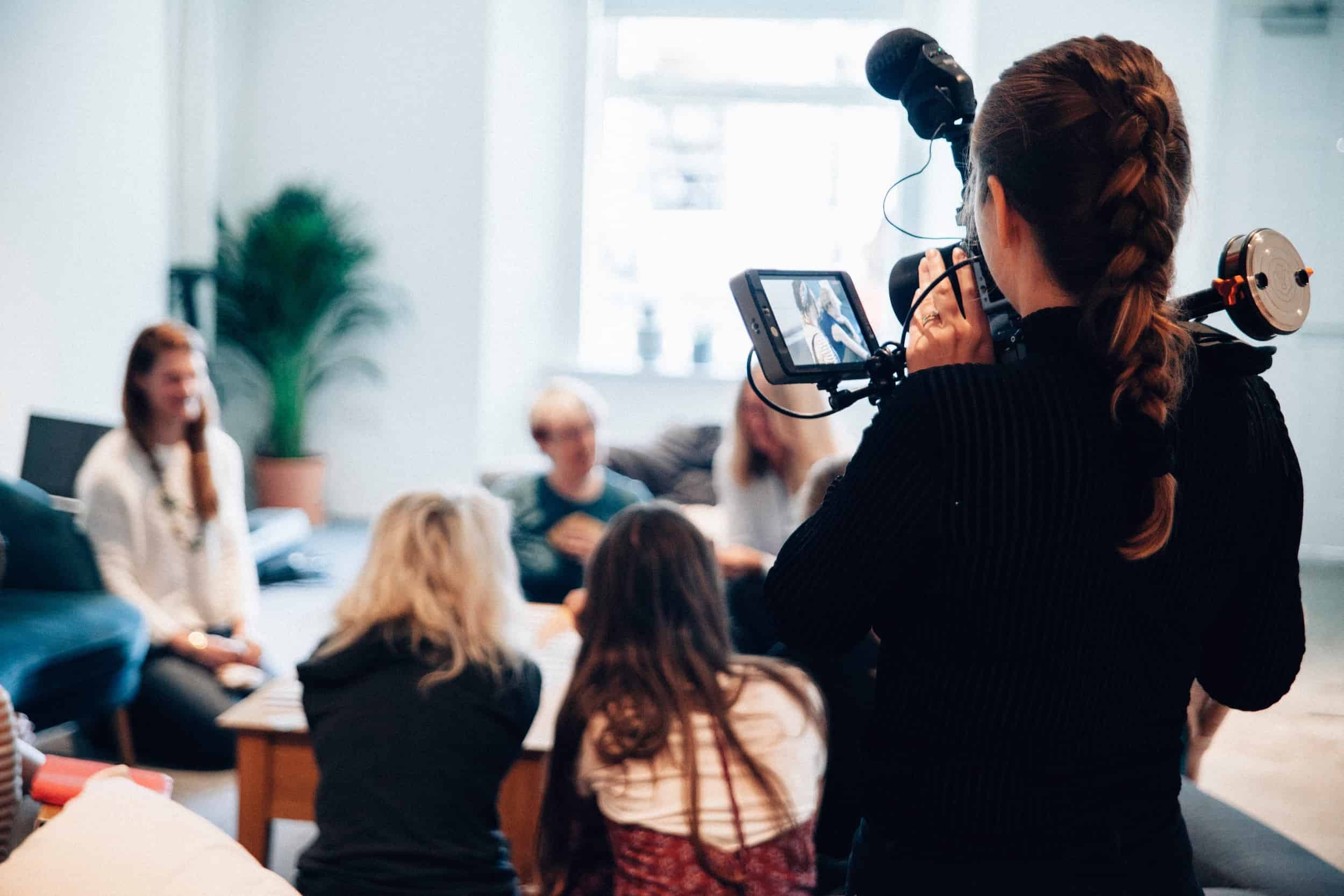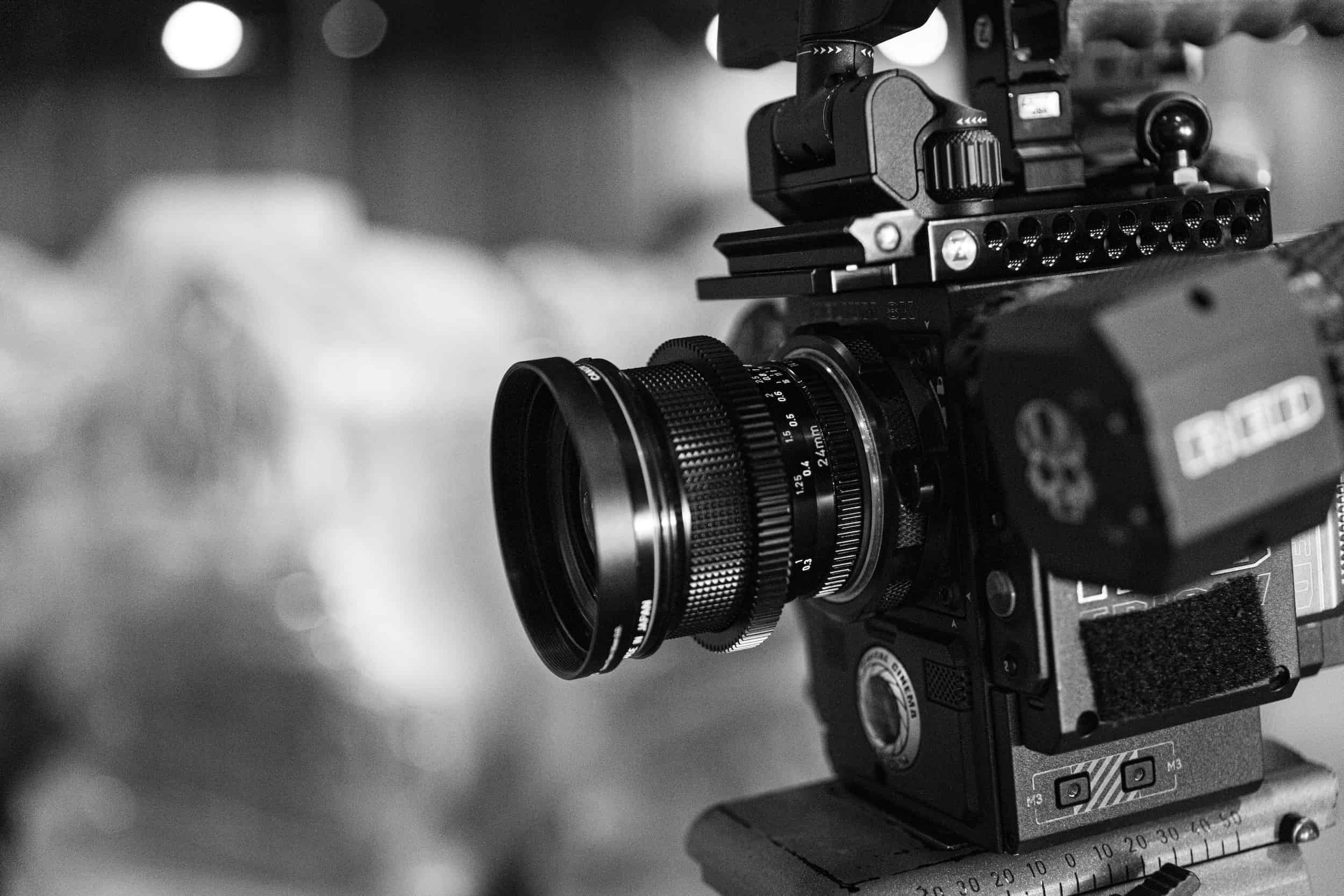
12 Jun How to Start a Legal Video Business: Beginner’s Guide
Legal videography is a rapidly expanding career field. With advances in technology, more trials in the courtroom rely on legal videographers. Many legal videographers work for themselves in a freelance capacity. This can be extremely profitable. However, there are a few necessary steps one must take before they are able to accept their first client.
How exactly do you start a legal video business? Many of the steps necessary to start a legal video business are similar to those required for starting any business in the United States. Establishing your business from a legal standpoint through a sole proprietorship or LLC, purchasing equipment, obtaining various certifications, and networking to gain future clients are just a few of the steps in this process.
When establishing a new legal video business, it is crucial to research everything involved in the process so that you know what to expect. Surprises are never a good thing when business is involved. Today we are going to cover a few of the steps you must take when starting a legal video business from the ground up.
What is a Legal Video Business
 A legal video business is a company that specializes in recording legally binding events. The primary position that a legal videographer will fill will be that of filming a video deposition. A video deposition is a meeting where a witness will testify under oath. This meeting takes place prior to the trial and is part of the investigative portion of a trial.
A legal video business is a company that specializes in recording legally binding events. The primary position that a legal videographer will fill will be that of filming a video deposition. A video deposition is a meeting where a witness will testify under oath. This meeting takes place prior to the trial and is part of the investigative portion of a trial.
Legal videographers can also be contracted to work as an evidentiary video specialist. A videographer in this capacity would record evidence at a crime scene or other location in question. This evidence is immovable, such as a damaged building or vehicle.
Occasionally, legal videographers will record the signing of important documents such as a large real estate transaction or the signing of a will. The purpose of this video is to prevent any disputes in the future once the deal has been settled.
A legal video business can consist of one legal videographer or many. You may begin your business as a way to freelance and then find that you need to hire additional videographers to take care of your clients. Because of the potential for growth in this industry, it is important that you establish your business properly from the start.
Types of Businesses
There are several things to consider before launching your legal video business. The first of these is determining how you will formalize your business legally. This may seem like something that doesn’t need to be dealt with right away. However, following the proper steps, in the beginning, will save you lots of trouble (and potentially thousands of dollars) in the long run.
So how should you file? Is a sole proprietorship or an LLC the answer? Are either necessary when you’re just in the beginning stages of a freelance business? Although the answer will vary depending on your unique situation, here are a few facts to consider.
Sole Proprietorship
A sole proprietorship is the first category we will dive into. Filing as a sole proprietorship provides the most streamlined approach when it comes to taxes. The downfall of a sole proprietorship is that it provides no protection for your personal assets.
This is something to consider when approaching a field like legal videography. The likelihood of a lawsuit against you or your business is significantly higher when you are producing a video that has legal implications for your client than it would be in other fields. However, for the sake of simplicity, many legal videographers launch their business as a sole proprietorship until they are working full-time in this capacity.
Limited Liability Company (LLC)
An LLC (or limited liability company), although a bit more complicated when it comes to taxes, offers protection of your personal assets in the event of a lawsuit against your business. There are also certain tax benefits that come as a result of setting up an LLC.
It is important to talk to a professional in the field before deciding which business entity is right for you. A knowledgeable expert will be able to assess both the personal and business implications and offer you advice before you move forward with this step in establishing your legal video business.
Equipment for a Legal Video Business
Obtaining the equipment for your legal video business is likely to be the biggest expense. Videography equipment is not cheap and it is important to own equipment of only the highest quality. There are several things you will need before you can properly film a video deposition or other legal events.
- A video camera may seem like a no brainer. However, it is likely the most important piece of equipment that you will own for your legal video business.
- Microphones are equally as important as the camera is to your success. Without high-quality microphones, the audio portion of the deposition will be a failure. It is recommended (and even required in certain states) that each person speaking during the video deposition is equipped with their own microphone.
- Backup recording equipment is crucial to the legal videographer. Even with the highest quality equipment, technology can fail at any moment. It is important that the legal videographer has access to additional equipment in the event that something is broken. Nothing is more unprofessional than having to postpone the deposition due to equipment failure.
- Production equipment is required for filming a deposition. This includes an audio mixer to balance the sound levels of various microphones. A laptop is also necessary. It will often be used as a backup recording device or a place to take notes for the editing process. You will also need all of the cables, cords, and wires necessary to set up your equipment in any situation.
- A video backdrop helps to create a polished deposition that is void of distraction. A video deposition can take place in a number of situations. You may not know what the room looks like until you arrive. Providing a backdrop for the witness is the best way to guarantee a professional-grade recording.
Other Legal Requirements
Besides registering your business as a sole proprietorship or LLC, there are a few other legal steps you must take before you can launch your legal video business.
If you register as an LLC, you will need to obtain a Federal Tax Identification Number (sometimes called an Employer Identification Number) through the IRS. This is essentially a social security number for your business. If you register as a sole proprietor, an EIN is not necessary. You may still choose to register for an EIN to avoid giving out your personal social security number on various forms.
As a freelance videographer, you will not have to worry much about employee laws as you will be the only employee. However, if you are planning on hiring other legal videographers or assistants, you will need to familiarize yourself with the employment laws. These laws govern everything regarding payroll, insurance, and even requirements for working hours.
To become a legal videographer, you must become familiar with your equipment and basics in both audio and video recording. Many aspiring legal videographers already have a background in videography. This is helpful as they must only learn the technical skills necessary for filming a video deposition.
Certification Requirements
There are no certification requirements for becoming a legal videographer. However, you may find it helpful to obtain certification such as CLVS (Certified Legal Video Specialist).
There are several organizations that offer this course such as The National Court Reporters Association (NCRA) or The American Guild of Court Videographers (AGCV). A certification such as this may help you to gain clients as you launch your legal video business. A certification is a great way to show your clients that you are a knowledgeable professional in the industry.
It is also important to study in-depth all of the requirements and regulations regarding video depositions in your state. A certification course is an excellent way to obtain this information. However, it is also available to anyone through a few simple searches.
Obtaining Clients
Once you have followed the necessary steps to establish your business legally and have purchased the equipment for filming legal video, you are ready to accept your first client. The best way to obtain clients for your legal video business is by building your reputation. Networking with other professionals in your area is one of the first steps to a great reputation.
It may be wise to offer your first few clients a significant discount. This is a great way to gain their trust while building your personal portfolio and obtaining further experience. You could even offer a discount for clients that have referred you to others in their professional network.
It is common for court reporting agencies to hire freelance videographers. Contacting the court reporting firms in your area to market your new legal video business is a great way to start finding clientele.
You may also consider reaching out to the law firms in your area. Firms will occasionally hire legal videographers to work exclusively for their firm and client base.
The opportunities for legal videography continue to grow. Networking is key to starting a successful legal videography business. With a great reputation, high-quality equipment, and the technical knowledge necessary, your business will be off the ground in no time!
You can learn more about becoming a legal videographer here.





